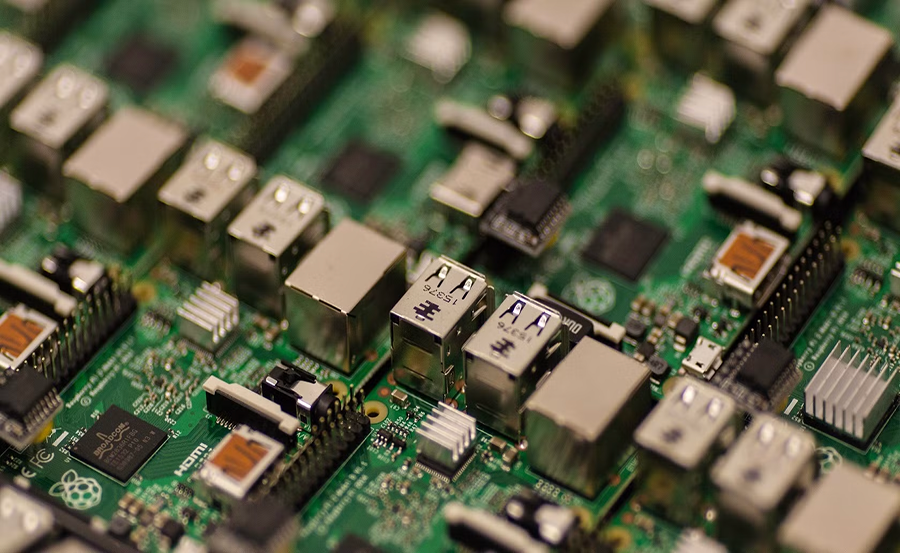Enter the world of smart homes—a realm where technology meets convenience. The idea of a smart home, initially perceived as futuristic, is now a tangible reality accessible to many. At the heart of this transition is the humble yet powerful Raspberry Pi. In this article, we’ll explore how you can turn your ordinary home into a smart haven using this versatile microcomputer. Along the way, we’ll discuss exciting projects, the best ways to utilize IPTV for sports, and much more to elevate your home entertainment system.
Understanding Raspberry Pi and Its Potential
What is Raspberry Pi?
Raspberry Pi is a series of small single-board computers developed by the Raspberry Pi Foundation with the aim of promoting basic computer science education. Despite its size, it packs enough power to function as the brains behind various tech projects. It’s affordable, versatile, and perfect for DIY enthusiasts eager to dip their toes in technology.
Why Choose Raspberry Pi for Smart Homes?
Choosing Raspberry Pi for your smart home setup offers numerous benefits. Its affordability makes it an attractive option for anyone on a budget who still wants to achieve IoT functionality. Its flexibility allows users to create customized solutions specific to their needs rather than relying on expensive commercial systems.
Pro Insight:
Stream seamlessly across devices with IPTV service in Canada, offering unmatched stability and content variety.
- Cost-effective: Minimal initial investment.
- Customizable: Configure to exactly what you need.
- Extensive Community Support: Vast resources available online.
Essential Components for a Smart Home
Basic Components Needed
To get started with your smart home setup, a Raspberry Pi is just the beginning. Depending on your intended projects, you’ll require additional components such as sensors, cameras, lights, and maybe even a few smart plugs. Below is a basic list of what you might need to embark on your smart home journey.
- Raspberry Pi Kit: Include all essentials like SD card and power supply.
- Sensors: Options such as motion, temperature, or humidity sensors.
- Smart Plugs: For controlling appliances remotely.
- IP Cameras: For home security and monitoring.
Network and Connectivity
A stable and secure network is crucial for a smart home to function seamlessly. Ensure you have a robust Wi-Fi connection or you might face connectivity issues when trying to control devices. Consider network security measures to protect your home from potential cyber threats.
Configuring Raspberry Pi for Smart Home Automation
Setting Up Your Raspberry Pi
To transform your Raspberry Pi into the command center of your smart home, start by installing an operating system such as Raspbian. Make sure to update and configure it to fit your specific needs. Connecting your Pi to your home network is crucial at this stage for enabling remote access to your home devices.
Popular Smart Home Projects Using Raspberry Pi
The possibilities are nearly limitless when it comes to smart home projects. From automated lighting to advanced security systems, Raspberry Pi can handle an array of tasks. Here are a few popular projects that you can try:
- Home Automation Systems: Control lights, locks, and thermostats remotely.
- Security Systems: Set up cameras and motion detectors.
- Media Centers: Use your Pi as an entertainment hub with Kodi or Plex.
Enhancing Your Smart Home with IPTV Services
The Role of IPTV in Smart Homes
Smart homes aren’t just about convenience—they’re also about enhancing entertainment experiences. IPTV (Internet Protocol Television) is one way to elevate this entertainment quotient. By connecting IPTV services with Raspberry Pi, you bring a host of sports and shows directly to your screen.
Choosing the Best IPTV for Sports Fans
If you’re a sports enthusiast looking to stay connected with live games and updates, selecting the best IPTV service is crucial. Many top IPTV services offer sports-focused packages that ensure you never miss a score. Here’s how you can maximize your sports viewing experience:
- Research Available IPTV Options: Evaluate plans for sports offerings.
- Consider Image Quality: Go for high-definition channels.
- Check Device Compatibility: Ensure it runs smoothly with Raspberry Pi setups.
Top IPTV Services to Consider
Not all IPTV services are created equal. Each streams different content, so choice depends on your viewing preferences. Here are a few factors to keep in mind when deciding:
- Content Variety: Look for services that offer diverse channels.
- Subscription Flexibility: Opt for month-to-month or yearly plans.
- Customer Support: Reliable help options should issues arise.
Maintaining Your Smart Home System
Regular Updates and Security Measures
Keeping your smart home setup up-to-date is vital. Regularly update your Raspberry Pi and connected devices to ensure they operate efficiently and securely. Security is paramount, so employ strong passwords and possibly two-factor authentication where possible.
Troubleshooting Common Issues
Even the best systems can face hiccups. Whether it’s connectivity drops or devices that refuse to sync, there are always solutions at hand. Look for online communities and support groups to help troubleshoot issues. Sometimes it’s a simple fix, other times it might require a deeper dive.
Final Reflections on Crafting a Smart Home
Embarking on a journey to create a smart home with Raspberry Pi is as rewarding as it is challenging. The ability to customize your living space to your specific liking represents the cutting edge of technological integration in daily life. With persistence and creativity, your smart home can enhance both your lifestyle and your entertainment endeavors.
Frequently Asked Questions (FAQ)

1. Can Raspberry Pi manage all smart home devices?
Yes, Raspberry Pi can manage various devices through its GPIO pins and software platforms like Home Assistant. However, complex setups may require additional hardware for optimal management.
2. What is the best operating system for a Raspberry Pi smart home setup?
Raspbian is often recommended due to its support from the Raspberry Pi Foundation, though other options like Ubuntu Mate or Home Assistant OS may suit specific needs better.
3. Are there any security risks associated with smart home automation?
Security risks exist, primarily from potential unauthorized access to your network. It’s essential to use strong passwords, keep software updated, and consider secure connections such as VPNs.
4. How can IPTV enhance my smart home experience?
IPTV can bring high-quality, diverse entertainment including sports events directly into your home. Integrating it with Raspberry Pi offers a customizable viewing platform that elevates your IPTV journey.
5. What are the typical costs involved in setting up a smart home with Raspberry Pi?
Costs vary based on scale. Basic projects might cost under $100, but larger, more complex setups might significantly exceed that, depending on additional equipment and technology required.
Streamlining Your Entertainment: Plex and IPTV Explained


